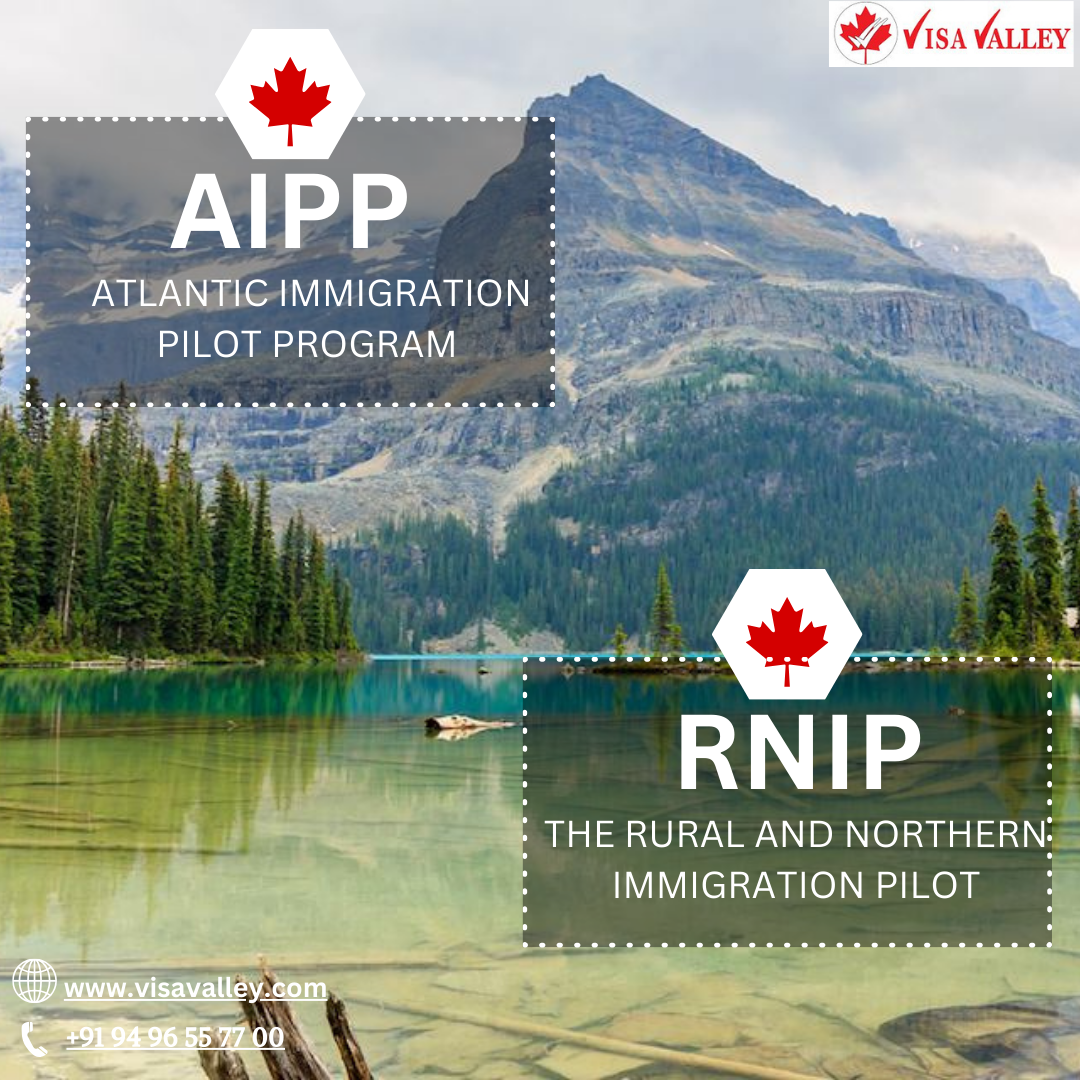AIPP and RNIP Program: Choosing the Right Immigration Path
AIPP and RNIP Program: Choosing the Right Immigration Path for Your Canadian Dream
Embarking on the journey to fulfill your Canadian dream through immigration involves critical decisions, with the choice between the Atlantic Immigration Pilot Program (AIPP) and the Rural and Northern Immigration Pilot Program (RNIP) standing out as a pivotal crossroads. Each program caters to unique circumstances and preferences. It is essential for prospective immigrants to understand the distinctions and benefits associated with both AIPP and RNIP Program.
Understanding AIPP:
The Atlantic Immigration Pilot Program (AIPP) is a specialized immigration pathway. It is designed to address the labor market needs of Canada's Atlantic provinces. Specifically, comprising New Brunswick, Newfoundland and Labrador, Nova Scotia, and Prince Edward Island, the AIPP facilitates the entry of skilled workers, international graduates, and intermediate-skilled workers into the region.
Features of AIPP:
Employer-Driven Approach:
AIPP operates on an employer-driven model, wherein employers in the Atlantic provinces play a crucial role in the immigration process. To participate, eligible employers must obtain a designated status to hire foreign workers through AIPP.
Job Offer Requirements:
Moreover, prospective immigrants applying through AIPP typically need a valid job offer from an employer in one of the participating Atlantic provinces. This ensures that the immigration process aligns with the region's specific labor market demands.
Categories of Applicants:
Furthermore, AIPP is divided into three main categories: the Atlantic High-Skilled Program, the Atlantic Intermediate-Skilled Program, and the Atlantic International Graduate Program. Each category caters to individuals with different skill levels and qualifications.
Transitioning to RNIP Program:
On the other hand, the Rural and Northern Immigration Pilot Program (RNIP) targets areas outside major urban centers. It emphasizes the development of smaller communities in Canada. Participating communities in provinces like Alberta, British Columbia, Manitoba, Ontario, and Saskatchewan seek to attract skilled workers who can contribute to the local economy and integrate into the fabric of rural life.
Features of RNIP :
Community-Specific Criteria:
RNIP distinguishes itself by prioritizing community-specific criteria, ensuring that applicants are not only qualified for the Canadian workforce but also aligned with the unique needs and opportunities of the participating community. This localized approach aims to foster integration and sustainable growth.
Community Endorsement:
Unlike AIPP, RNIP requires applicants to receive a community endorsement. This endorsement serves as a testament to the applicant's compatibility with the community's values, making it an integral part of the selection process.
Flexibility in Job Offers:
Moreover, RNIP provides flexibility in job offers, allowing applicants to secure employment from a designated employer within the participating community. This approach fosters a direct connection between immigrants and the communities they choose to call home.
Key Differences:
Geographical Focus:
AIPP predominantly focuses on the Atlantic provinces, while RNIP encompasses various rural and northern communities across multiple provinces. This distinction is vital for applicants seeking a specific regional experience.
Community-Specific Criteria:
RNIP emphasizes community-specific criteria, ensuring applicants align with the unique needs and opportunities of the participating community. AIPP, while regionally focused, has a broader approach, catering to the overall needs of the Atlantic provinces.
Job Offer Requirements:
AIPP generally requires a job offer from an employer in the Atlantic region, whereas RNIP mandates a valid job offer from a designated employer in the participating community. This nuance affects the way applicants secure employment within their chosen program.
Choosing the Right Path:
Factors to Consider:
- Personal Preferences:
Consider your preference for urban or rural living, as well as your desired lifestyle. AIPP is ideal for those attracted to the charm of Atlantic provinces, while RNIP caters to those seeking a quieter, rural setting. - Occupation and Skills:
When assessing your occupation and skills in relation to the specific needs of the chosen program, it becomes apparent that RNIP might be more suitable for those with skills that align with the targeted industries in participating communities. - Community Integration:
If community integration and contributing to the growth of a smaller town appeal to you, then RNIP provides a platform to actively participate in local development initiatives..
In navigating the complex landscape of Canadian immigration, choosing between AIPP and RNIP necessitates a thorough understanding of individual circumstances and program nuances. By weighing factors such as geographic preferences and job requirements, aspiring immigrants can make an informed decision. This paves the way for a successful and fulfilling Canadian dream by considering community-specific criteria.
Our dedicated team at VisaValley specializes in facilitating successful immigration experiences, offering comprehensive guidance tailored to your unique circumstances. Whether you aspire to embrace the vibrant culture of Canada's Atlantic provinces through AIPP or contribute to the growth of rural communities via RNIP, VisaValley is your bridge to a seamless and successful immigration process. Contact us today to embark on your Canadian dream with confidence.






